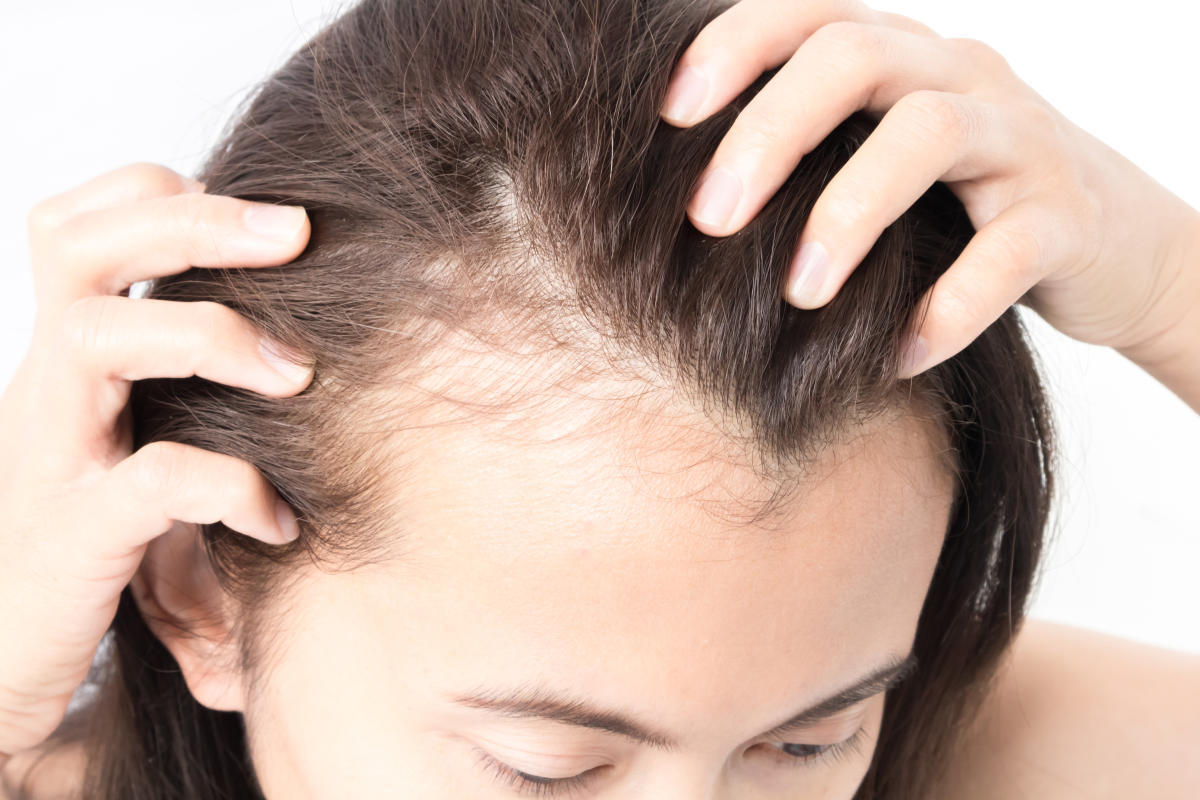
Sleep is crucial for brain function, healing, and the production of adult stem cells. Even minor sleep disruptions can significantly impact your body and mind, leading to issues like memory loss, mood disorders, depression, and eating problems. Poor sleep habits is a major factor that increases the risk of conditions such as diabetes, heart disease, high blood pressure, skin issues, and weight gain. Additionally, not getting enough sleep weakens the immune system.You might be wondering if lack of sleep causes hair loss. Here, you’ll find clear information about the connection between sleep and hair loss.
Table of Contents
What is the science behind hair growth?
Before we explore the link between sleep and hair loss, let’s first look at how hair grows. Hair growth is a complex process that happens in different stages. Each hair follicle on your scalp goes through phases of growth, rest, and shedding. For optimal function, hair follicles need various nutrients and a supportive environment. You can also consult hair loss treatment in Coimbatore to restore your precious strands.
Why is quality sleep important?
The quality of your sleep can greatly impact your hair health. During deep sleep, your body focuses on repair and rejuvenation, releasing important growth hormones that help promote hair growth. Additionally, getting enough sleep helps keep stress levels low to maintain hair fall control.
How does your body react to lack of sleep?
Lack of sleep can cause your stress levels to rise, and we know that stress can significantly contribute to hair loss. High stress leads to an increase in hormones like cortisol, which can interfere with the normal hair growth cycle. This may push hair follicles into the resting phase, making them more likely to fall out.
Not getting enough sleep also affects your immune system, making you more likely to get sick. Your scalp’s health is closely tied to your overall immune health, so if your immune system is weakened, it can lead to a poor scalp condition and potentially result in hair loss.
Also, poor sleep can impact your blood circulation, reducing the flow of oxygen and nutrients to your hair follicles. This can weaken your hair and slow down its growth.
What makes lack of sleep affect hair growth?
The body produces a hormone called melatonin, which helps regulate sleep and boost hair growth. Since sleep affects the body’s natural hormones, poor sleep can lower melatonin levels and potentially lead to hair loss.
Not getting enough sleep can increase stress levels, which has been linked to hair loss through a condition called telogen effluvium. When you’re exhausted, it can push hair follicles into an early resting phase, causing hair to fall out sooner than usual.
Fortunately, for a large number of individuals who work excessive hours or stay up late, hair loss resulting from sleep deprivation is frequently reversible. If ignored, however, the damage can become long-term. Lack of sleep raises cortisol levels, a stress hormone linked to increased hair loss and serious health issues. Once you start getting enough sleep, cortisol levels return to normal, the body moves out of survival mode, and normal hair growth and bodily functions can resume.
How can lack of sleep and hormonal imbalance cause hair fall?
Lack of sleep doesn’t just make you feel exhausted; it can also upset your hormonal balance. When you don’t get enough sleep, your body produces more stress hormones like cortisol, disrupting the balance of your hormones. This imbalance can lead to hair loss and slower hair growth, leaving your hair looking less full and healthy.
What are the best tips to prevent hair loss?
Having trouble falling or staying asleep? Don’t worry! We have some useful tips to help improve your sleep routine and keep your hair healthy and vibrant.
Make a healthy sleep schedule:
To improve hair quality and reduce hair loss, there are some changes you can make:
The best way for hair loss prevention related to lack of sleep is to focus on emotional well-being and getting enough rest. Healthy sleep patterns depend on factors like the amount of sleep you get, the condition of your bed, and your sleeping habits. Once you establish a consistent sleep schedule, cortisol levels will decrease, and hair loss will likely slow down.
Dietary and lifestyle changes for sleep:
What you eat and your daily habits can significantly affect your sleep quality. Aim for a balanced diet with foods high in sleep-promoting nutrients like magnesium, potassium, and vitamin B6, which are found in bananas, leafy greens, whole grains, and nuts. Also, limit stimulants like caffeine, especially in the evening, as they can disrupt your sleep.
Regular exercise can help you sleep better, but try to finish your workouts a few hours before bedtime to give your body time to wind down.
Important Takeaway:
The link between lack of sleep and hair loss is complex. Chronic sleep deprivation can disrupt the hair growth cycle, leading to increased hair thinning and shedding. By focusing on getting good quality sleep and using stress-reducing methods, you can support healthy hair growth and overall well-being. If you’re dealing with hair loss or sleep problems, don’t hesitate to reach out to the best skin specialist in Coimbatore for personalized guidance and treatment options.

